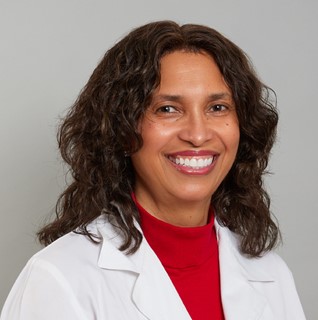Dr. Sharon Wilks considers her ability to work in cancer care a gift from heaven. But for those who have worked beside her or who have been treated by her, they consider her to be the gift.
It seems that even after more than three decades of research and clinical cancer care, Dr. Wilks still follows her heart and puts her whole heart into the care and compassion she provides to her patients.
“I truly care for my patients as if they were family,” Dr. Wilks said. “I stay up on the latest therapies and bring them to my patients, as well as all current aspects of care that relate to my patients. They deserve that.”
Dr. Wilks has focused on research and advancements in the treatment of breast cancer for more than 32 years as a hematologist and medical oncologist. She joined NEXT Oncology after beginning her career in the Air Force and spending most of her time in private practice. She says she made the transition to NEXT Oncology for a better opportunity to focus on caring for patients and serving them with options of hope for a better outcome in cancer care when they need it most.
“I am extremely encouraged that novel measures in breast cancer are being offered literally every day,” said Dr. Wilks. “I want to continue to be involved with this area of research that may lead ultimately to better survival rates and improvements in quality for the breast cancer survivor seeking care.”
Throughout her career, Dr. Wilks has helped advance cancer prevention and drug development in Phase II and III clinical trials. Now, she will be involved in all Phase I and drug development projects at NEXT Oncology but with a dedication to breast cancer research.
Dr. Wilks said she found limited research options in private practice due to established inclusion and exclusion criteria in trials. She believes that earlier forms of research, such as Phase I, provide a much broader net of options for her patients. She also believes that disparities in clinical research need to be addressed.
“In many studies today, despite marked improvements in care, there is limited representation of some groups specifically those who are African American and Hispanic. There is also limited representation of men and women greater than 60-75 years of age,” Dr. Wilks said. “This is unfortunate because a good proportion of those affected with cancer are older. Having limited understanding of how new drugs and approaches work in the elderly can lead to limited application of these important measures once they get improved.
“In addition, in spite of how common cancer is today (recent statistics in the US exceed a million cases per year of new cases), in general, most reports suggest only 5-10% of those diagnosed with cancer are enrolled in studies. How are we ever going to improve outcomes meaningfully if we don’t place patients on trials who face cancer?”
Until a cure for cancer is found, clinical trials should strongly be considered as a key and crucial option in care. It should not be the last option but considered as a critical measure early on in cancer care. At NEXT Oncology, Dr. Wilks and her colleagues are on a mission to find better therapies to treat cancer and its symptoms for an improved quality of life for their patients. Together, the physicians and patients are working for the future of cancer care, and ultimately, a cure.

